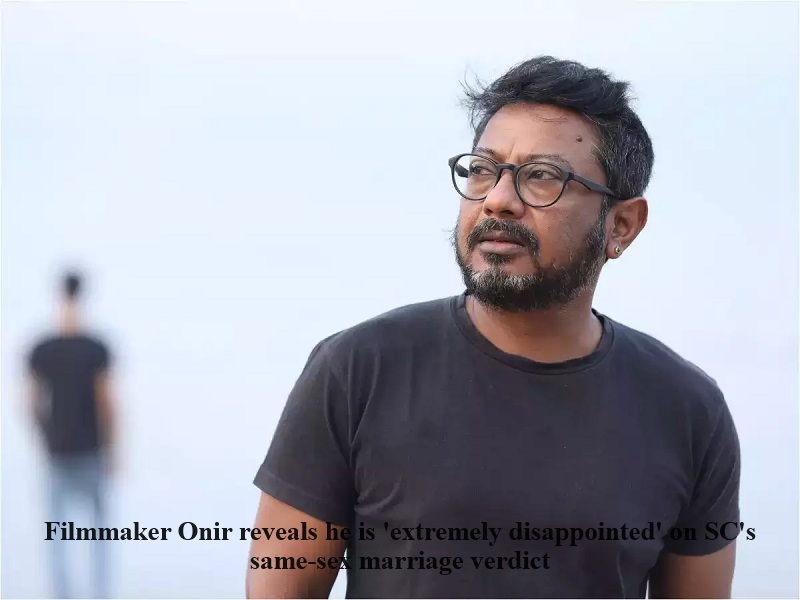
On Tuesday, India’s Supreme Court delivered a surprising decision by declining to legalize same-sex marriage in the country, disappointing the LGBTQ+ community that had eagerly anticipated the court’s ruling. Additionally, the Supreme Court denied adoption rights for the LGBTQ+ community.
This decision comes five years after the Supreme Court made a historic decision in November 2018 to decriminalize homosexuality.
The five-judge bench of the Supreme Court decided not to legalize same-sex marriage and instead left the matter in the hands of the legislature, marking a significant setback for the queer community.
Renowned Bollywood filmmaker Onir, known for his impactful queer-themed films such as My Brother… Nikhil and I AM, expressed his disappointment with the Supreme Court’s judgment during an exclusive interview with WION. Onir, who has been a strong advocate for LGBTQ+ rights, was disheartened by the apex court’s refusal to legalize same-sex marriage in this landmark ruling.
In response to the 3:2 judgment, Onir remarked, “I think that the verdict of the Supreme Court has been extremely, extremely disappointing. They started off with a lot of force, and then it came out just as hollow. We were hoping that at least under the Special Marriage Act, the court would have made a provision, as it was important for human rights and important for the Supreme Court to decide. And I feel that the court has failed the entire community out there.”
Apart from refusing to legalize same-sex marriage, the five-judge bench also denied adoption rights for queer couples. Onir expressed his concern for orphaned children, saying, “More than anything, I feel sorry for all those orphaned kids who missed the possibility of having a home. I feel that the judgment has denied the possibility for many orphan children to find a happy home.”
The Supreme Court’s ruling suggested that the decision regarding the legalization of same-sex marriage should be made by the Indian Parliament. However, the court did list various measures to protect the queer community from discrimination, such as the establishment of safe houses, public awareness campaigns, a helpline for the community, and directives to halt harassment of the community.
Onir criticized the Supreme Court’s decision, highlighting the lack of concrete action. He noted, “There were a lot of nice and flowery things, but there was no action. So, it’s like, ‘all this should be done, but sorry, we can’t do anything, and Parliament can do it, but this should be done.’ Before this judgment, the court had said many things that the state government should do in terms of empowering the trans community. Does it happen? Unless you put a deadline, unless you take the first step, nothing changes.”

Post Your Comments